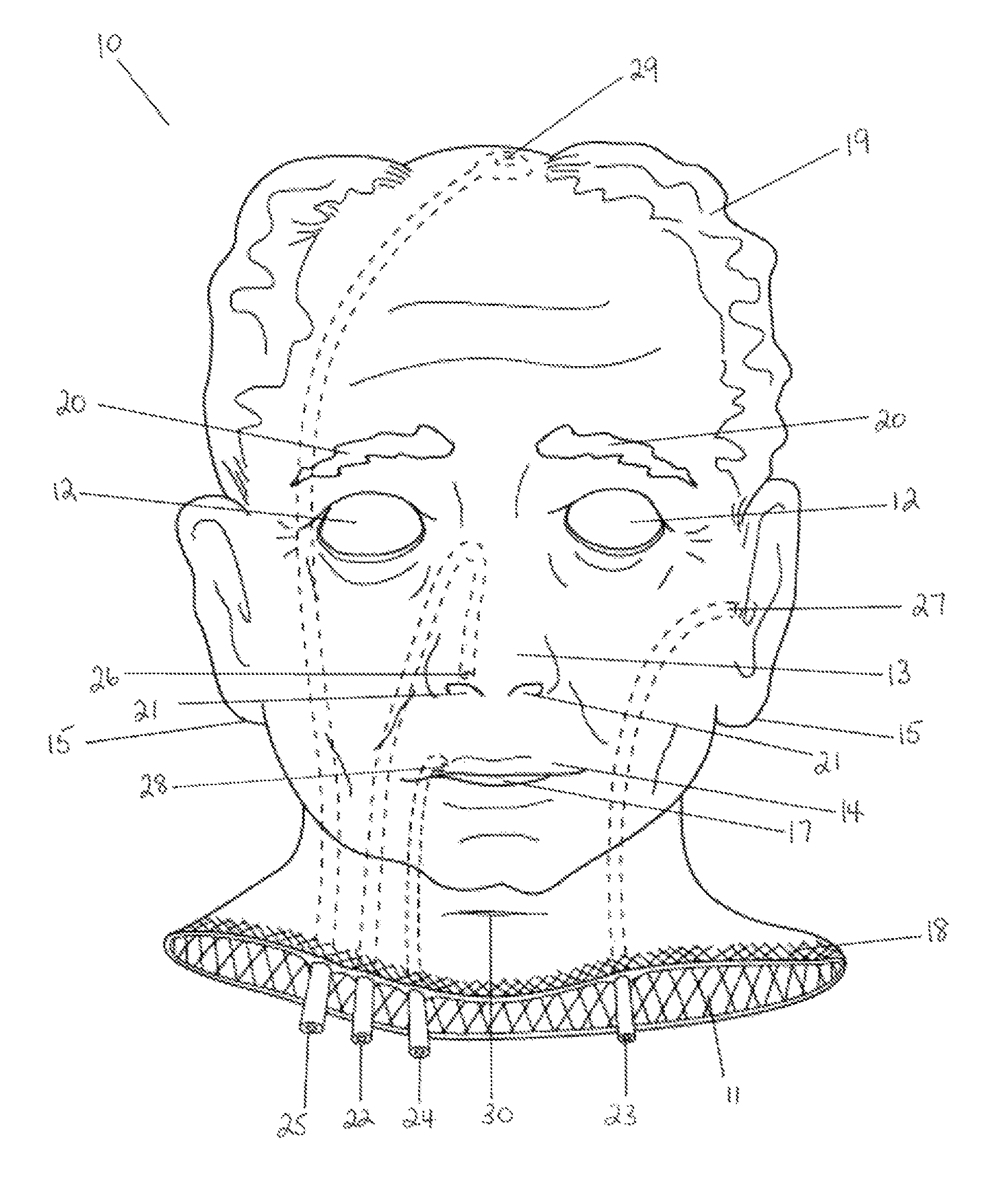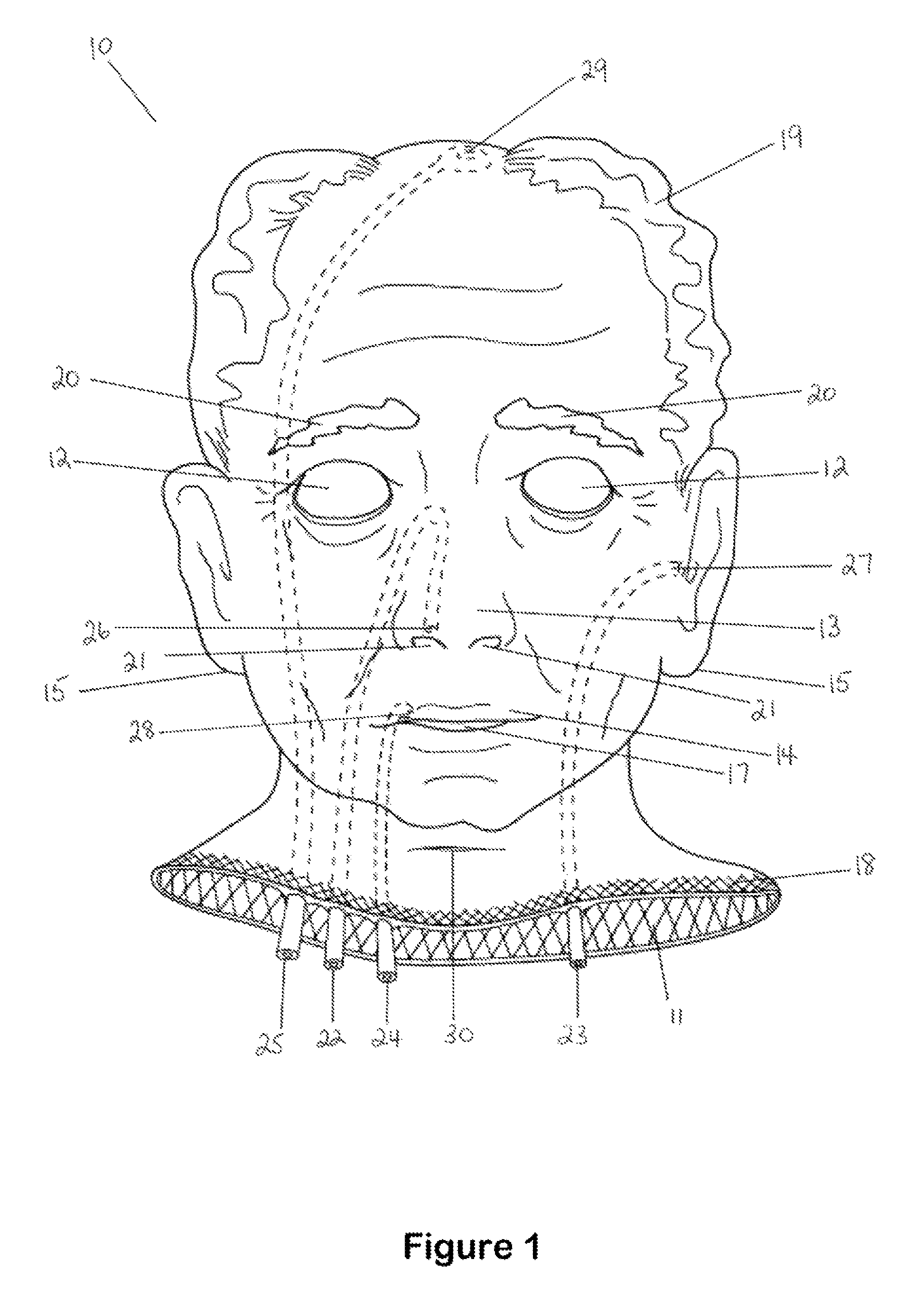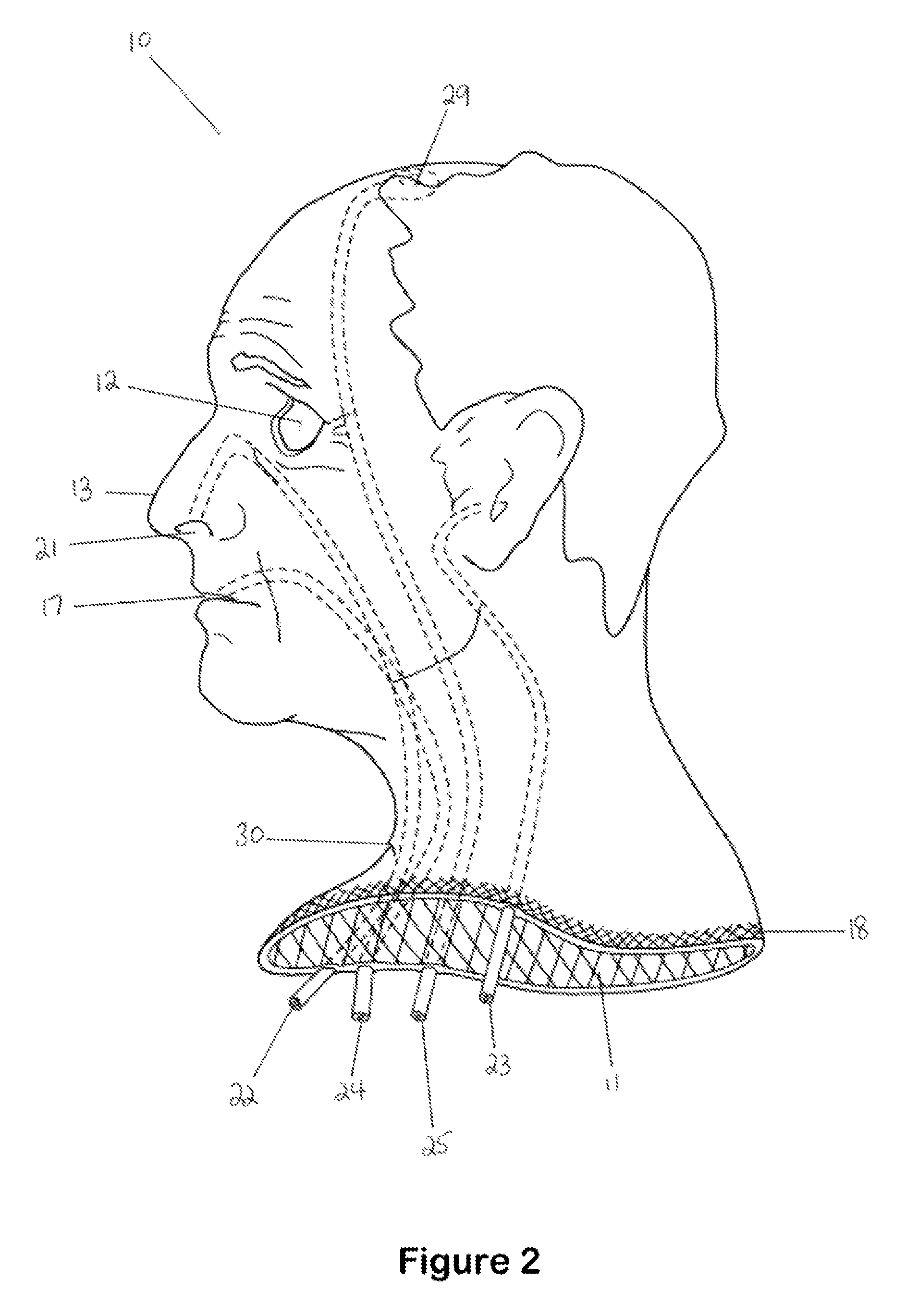Teaching prop
a prop and prop technology, applied in the field of teaching props, can solve the problems of limited applicability, ineffective hard plastic masks, difficult to teach and demonstrate clinical procedures in a realistic situation, etc., and achieve the effect of strengthening teaching and effective education methods
- Summary
- Abstract
- Description
- Claims
- Application Information
AI Technical Summary
Benefits of technology
Problems solved by technology
Method used
Image
Examples
Embodiment Construction
[0076]With reference to FIGS. 1 to 3 there is shown a silicone mask prop 10 in accordance with a first preferred embodiment of the present invention. The mask 10 is one-piece, and has an opening 11 to allow the mask to be pulled on over the wearer's head and neck. There is a reinforcing mesh 18 around the edge of the opening 11 to prevent tearing when the wearer is donning or removing the mask 10. The mask 10 comprises real hair 19 and eyebrows 20 embedded in the silicone. The mask 10 comprises eyes 12, nose 13, lips 14 and ears 15. The eyes 12 comprise apertures 16 to allow the wearer to see. The lips 14 have a mouth aperture 17 to allow the wearer to speak. The nose 13 has nostril apertures 21 to allow the wearer to breathe. The ears 15 each have an aperture to allow the wearer to hear.
[0077]The mask 10 is fitted with internal silicone conduits 22-25. These conduits 22-25 are connected to external features, and allow the wearer to control the emission of simulated physiological fl...
PUM
 Login to View More
Login to View More Abstract
Description
Claims
Application Information
 Login to View More
Login to View More - R&D
- Intellectual Property
- Life Sciences
- Materials
- Tech Scout
- Unparalleled Data Quality
- Higher Quality Content
- 60% Fewer Hallucinations
Browse by: Latest US Patents, China's latest patents, Technical Efficacy Thesaurus, Application Domain, Technology Topic, Popular Technical Reports.
© 2025 PatSnap. All rights reserved.Legal|Privacy policy|Modern Slavery Act Transparency Statement|Sitemap|About US| Contact US: help@patsnap.com



